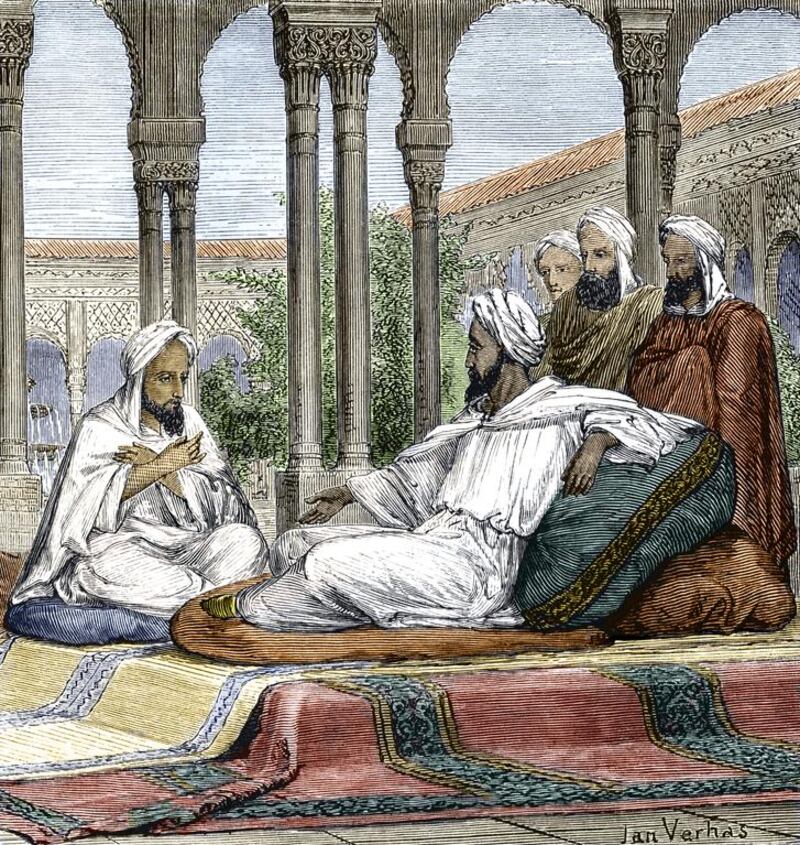In 953AD, when the sultan of Egypt demanded a pen that would not stain his clothes, the world’s first fountain pen was invented by the cleverest in his court.
When seeking knowledge becomes a core value, when science, education, innovation and invention become a culture – rather than a side project – everything is possible. This means that with the right tools and the right mind set, a city, a nation or a civilisation can flourish.
The rich legacy of the Golden Age of Islamic civilisation (from the mid-7th century to the 13th century) included Arabs and non-Arabs. The greatest minds included both women and men from across the civilisation. It gave us the number zero, the decimal point in arithmetic, algebra, tools that measure celestial bodies, breakthroughs in medicine such as treatments for cataract and glaucoma, literature, music, art, fashion and architecture – every aspect of life was explored and developed.
The point is, there was no limit to what someone could then do. They built on the knowledge of other nations and cultures, they translated their works and improved upon them, there was tolerance and there was embracing of others, there was a curiosity and hard work to move things forward.
As an example, there was once an intellectual centre, the legendary Bayt Al Hikma (The House of Wisdom) founded by Caliph Harun Al Rashid (reigned 786–809) and finished by his son Al Ma’mun (reigned 813–833), who is credited with its formal institution.
Every great civilisation had its great libraries and centres of innovation and creation, had its theatres and plays, recreated its infrastructure and pushed its own limits to lead and leave a legacy.
We can get a glimpse of our rich past in initiatives such as the 1001 Inventions, an award-winning international science and cultural heritage organisation that raises awareness of the creative golden age of Muslim civilisation that stretched from Spain to China. It is dedicated to the popularisation of the history of science and technology of that time.
“It’s very important to build on the shoulders of giants,” said Ahmed Salim, the producer and director of 1001 Inventions.
A year dedicated to reading, a plan to open the biggest library in the Arab World, parks and projects dedicated to education, science and innovation, an impressive canal built, setting up numerous museums, going green and smart, supporting the arts – including film and performing arts – and the numerous collaborations with other Arab and Islamic centres around the region as well as international collaborations – all this echoes initiatives taken during that golden era.
In a way, we are lucky to witness how the UAE is transforming itself. Those who have been here for a long time appreciate this development and evolution even more.
Unfortunately, while some countries are moving forward, others are, in fact, regressing and falling apart.
It is not enough to look back nostalgically and do nothing, even to the most golden of times. There were conflicts, wars, instabilities and tragedies. The history of our region as well as that of other parts of the world is replete with sacrifices and bloodshed.
To say we were once this or that is not enough to overcome what many are calling this region’s darkest and ugliest chapter. We have to face the moment with all its ugly reality and consider what we can really do about it.
From terrorism to destruction of everything sacred, the Arab world laments the collapse of its greatest capitals such as Baghdad and Damascus, and to some extent Cairo as well as Beirut, where their full potential had not been realised because of politics.
The brightest people of these nations fled or continue to flee to other parts of the world. They are ready to take any risk to get out of their homeland.
Focusing on seeking knowledge, being curious and ambitious, or even a simple act such as sitting with elders and experts in their fields, are steps in the right direction.
Just because we can quickly search something on the internet doesn’t make us experts. We need to realise the value of the exchanges between a teacher and a student, the old and the young, the resident and the visitor. Such interactions were prized by some of the great civilisations of the past.
rghazal@thenational.ae
Twitter:@arabianmau





